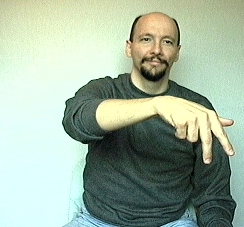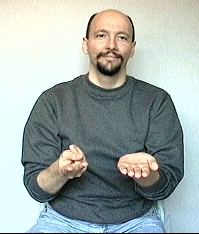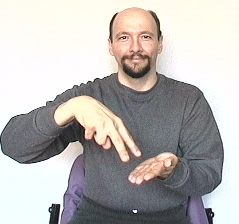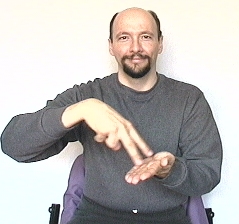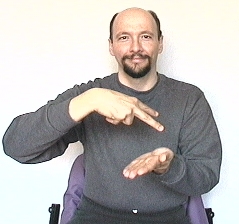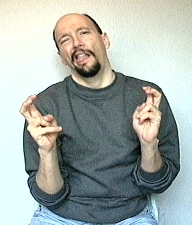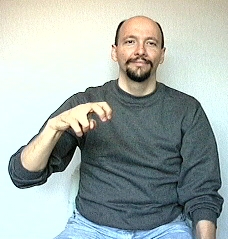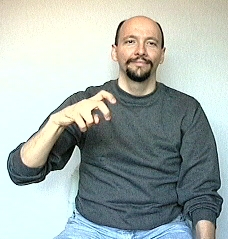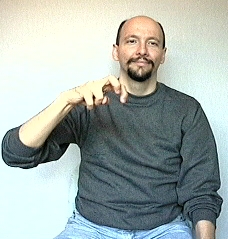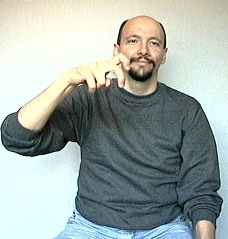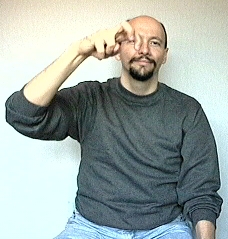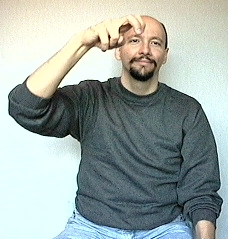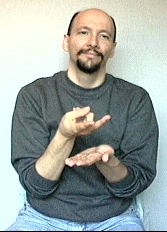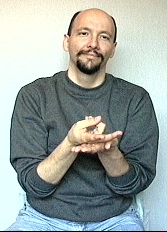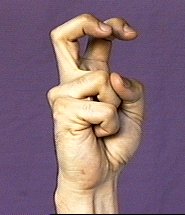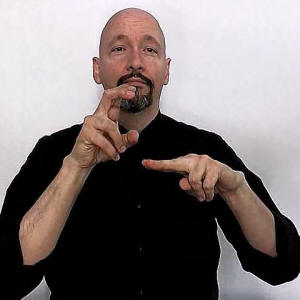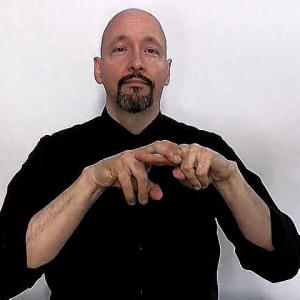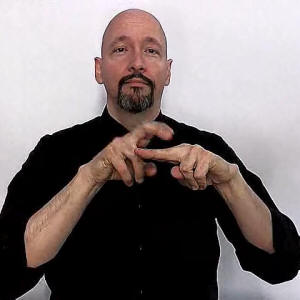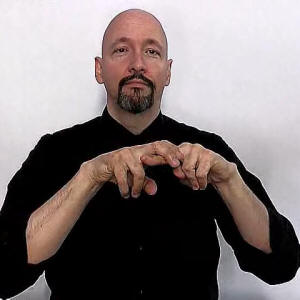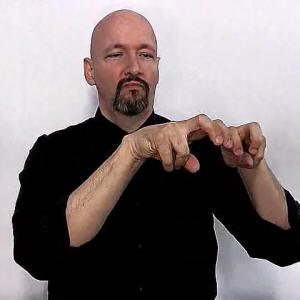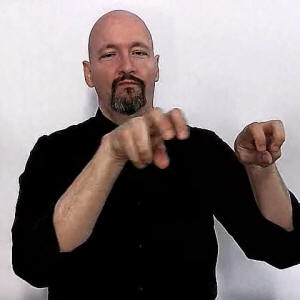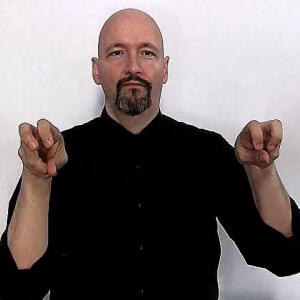American Sign Language: "Classifier: V"
The classifier known as "Classifier V" is commonly used to show how a person's legs move.
It can be used to indicate:stand
walk-to
lying down
toss-and-turn
dive
jump
skate board
scooter
get upfangs (snake, biting)
dollar-signs in eyes
If you specifically needed to indicate that you were walking (and not riding) or that someone is able to walk around now (as if they were bedridden before) you can use the sign "WALK-to." This means "walk over to" or "walk on your own two feet."
WALK-to:
Note: "WALK-to" is not the best choice for general "walking." For that use the WALK sign.
STAND:
STAND-UP:
(get-up)
CL-V: DANCING "dancing." Note: The sign DANCE is not the same as using the CL-upside-down-V to show "how" a person is dancing. If you just do the normal sign "DANCE" then it isn't considered a "classifier." (Even though it is what might be called a lexicalized classifier.) But as soon as you use that handshape to show "how" a person is dancing then it becomes a classifier.
You can show someone who is "extremely dead."
This sign shows a dead person or animal's limbs sticking up into the air.
HIKE (variation) Again, this is a sign that may or may function as a classifier-- depending on if you use it to show how a person hiked or where they hiked in relation to other elements in your story.
Note: This isn't the only sign for "hiking." In context the sign WALK done with "3" handshapes is also a common sign for 'hike."
LAY DOWN:
"Classifier upside-down bent-V" is used to represent small animals sitting:
CL-bent-V"
You can show a row of chairs by using "bent-V" handshapes.
To sign "row" as in "a row of chairs" you can first do the sign for CHAIR and then use CL-bent-V to show the row:
You can learn
sign language
(ASL) online at American Sign Language University ™
Lifeprint.com © Dr. William Vicars






